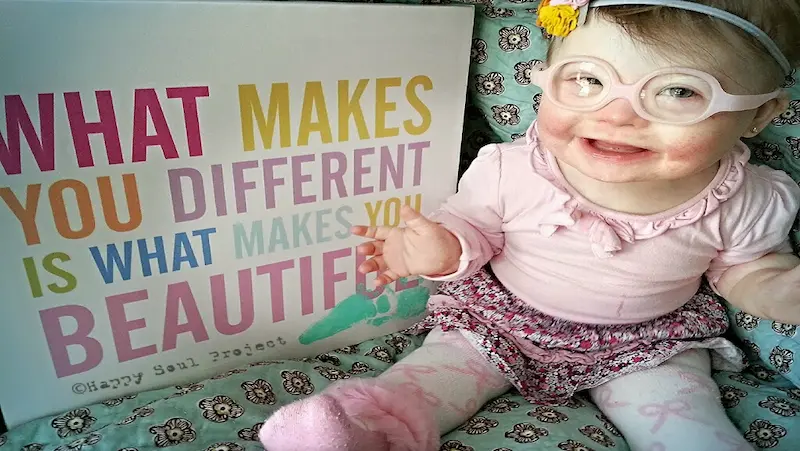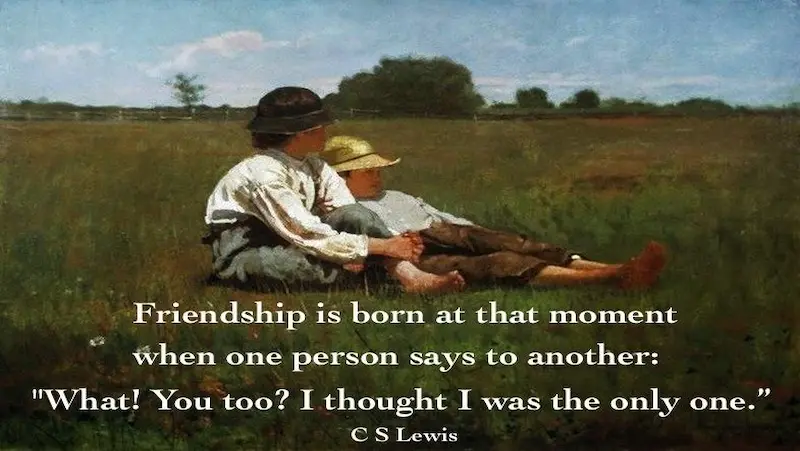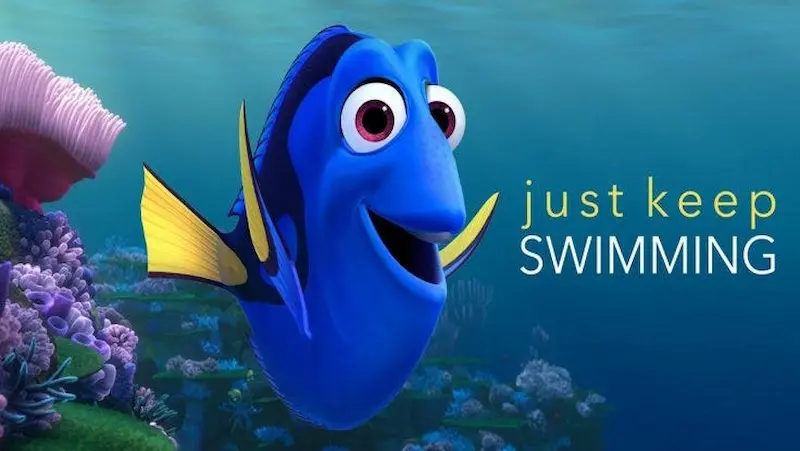“If you can dream it, you can do it.”
– Walt Disney
Do you remember the last time someone said something that made you feel like you could conquer the world? Imagine if those words were specifically designed to ignite your creativity and motivation. That’s the power of inspiring quotes for kids.
Children possess boundless potential and a unique perspective that can shape the future. As they navigate the world, it is crucial to provide them with the tools they need to flourish and thrive. Encouragement, understanding, and belief in their abilities can make all the difference.
Inspiring quotes for kids serve as a guiding light, sparking their imagination, fueling their passions, and instilling the courage to dream big. These quotes remind children that their ideas matter, their voices are significant, and their dreams are worth pursuing.
By nurturing their creativity and motivation, we empower children to think outside the box, explore new possibilities, and embrace challenges with resilience. Through the power of inspiring words, we cultivate a generation of thinkers, dreamers, and doers ready to make a positive impact on the world.
So, let’s embark on a journey filled with inspiring quotes, unlocking the potential within each child and guiding them toward a future full of endless opportunities.
Table of contents
Introduction
Inspirational quotes for children hold immense significance in shaping their mindset and fostering their overall development. Here are a few key reasons why they have a positive impact:
1. Encouraging Growth Mindset: Inspirational quotes promote a growth mindset, emphasizing that intelligence and abilities can be developed through effort and perseverance. They teach children to embrace challenges, view failure as a stepping stone to success, and believe in their capacity to learn and improve.
2. Boosting Self-Confidence: Positive and uplifting quotes instill a sense of self-belief and confidence in children. They remind them of their worth, strengths, and potential, encouraging them to trust in themselves and their abilities. This confidence empowers children to take risks, explore new ideas, and step out of their comfort zones.
3. Fostering Resilience: Inspirational quotes teach children to bounce back from setbacks and adversity. They instill resilience by conveying the message that obstacles are temporary and that they possess the strength to overcome them. This resilience enables children to face challenges head-on, persevere in the face of difficulties, and develop problem-solving skills.
4. Cultivating Creativity: Quotes that inspire imagination and creativity open doors to new ideas and perspectives. They encourage children to think outside the box, explore their creativity, and express themselves in unique ways. Such quotes spark curiosity, inspire innovation, and cultivate a lifelong love for learning.
5. Nurturing Positive Mindset and Attitude: Inspirational quotes shape children’s mindsets by promoting positive thinking and a positive attitude. They help children develop a sense of optimism, gratitude, and empathy. These qualities enable them to approach life with a positive outlook, seek opportunities in challenges, and build healthy relationships with others.
In all, inspirational quotes for children play a vital role in shaping their mindset, building their self-confidence, nurturing resilience, fostering creativity, and instilling a positive outlook on life. By providing a source of motivation and guidance, these quotes contribute significantly to the overall development and well-being of children.

Importance of Quotes for Kids
Quotes hold great importance for kids as they have the power to inspire, motivate, and nurture creativity in children.
Firstly, quotes inspire children by providing them with words of wisdom, encouragement, and guidance. They offer glimpses into the experiences and wisdom of great thinkers, leaders, and achievers, serving as a source of inspiration for young minds.
Through quotes, children can learn about the struggles and successes of others, realizing that they too can overcome obstacles and achieve greatness.
Secondly, quotes have a motivational impact on children. They ignite a spark within them, fueling their ambition and determination. Motivational quotes instill a sense of purpose and drive, reminding children of the importance of hard work, perseverance, and resilience.
By internalizing these motivational messages, children are motivated to pursue their goals, take on challenges, and strive for excellence in various aspects of their lives.
Additionally, quotes play a crucial role in nurturing creativity in children. Creative quotes inspire children to think differently, explore their imagination, and embrace their unique ideas. These quotes encourage children to question, experiment, and seek innovative solutions to problems.
By exposing children to diverse perspectives and creative thinking, quotes expand their horizons, broaden their understanding of the world, and unlock their creative potential.
In summary, quotes are important for kids as they inspire, motivate, and nurture creativity. They provide a source of inspiration by sharing the wisdom of others, motivate children to pursue their goals with determination, and foster creativity by encouraging them to think outside the box using Programs for kids.
By incorporating quotes into their lives, children can develop a positive mindset, cultivate resilience, and explore their limitless potential.

Benefits of Using Quotes for Children
Using quotes offers numerous benefits for children, as they have a profound impact on their personal and intellectual development. Here are several key benefits of incorporating quotes into children’s lives:
1. Improving Confidence: Quotes have the power to boost children’s confidence by reminding them of their worth and highlighting their strengths. When children read or hear quotes that resonate with them, it instills a sense of self-belief and encourages them to trust in their abilities. This improved confidence empowers them to take on challenges, express themselves, and embrace new opportunities.
2. Enhancing Learning: Quotes provide valuable insights and wisdom from notable individuals across various fields. By exposing children to different perspectives, quotes broaden their knowledge, ignite curiosity, and enhance their learning experience. Quotes can introduce them to new ideas, historical events, and diverse cultures, fostering a love for learning and encouraging critical thinking.
3. Fostering Positive Thinking: Positive quotes promote a positive mindset and encourage children to develop an optimistic outlook on life. They remind children to focus on the bright side, embrace gratitude, and approach challenges with a positive attitude. By internalizing positive quotes, children learn to reframe their thoughts, seek solutions, and maintain resilience in the face of adversity.
4. Developing Resilience: Quotes often convey messages of resilience, perseverance, and overcoming obstacles. When children encounter quotes that highlight the importance of resilience, they learn that setbacks are temporary and failure is a stepping stone to success. Such quotes instill a growth mindset, teaching children to bounce back from setbacks, learn from their mistakes, and keep striving towards their goals.
5. Encouraging Reflection and Expression: Quotes prompt children to reflect on their own thoughts, feelings, and experiences. They can serve as conversation starters, encouraging children to express their opinions, engage in discussions, and articulate their ideas. Quotes can also inspire children to express themselves creatively through writing, art, or other forms of self-expression.
By harnessing the power of quotes, children benefit from improved confidence, enhanced learning, positive thinking, and the development of resilience. Quotes serve as catalysts for personal growth and intellectual exploration, empowering children to navigate the world with optimism, resilience, and a thirst for knowledge.
Famous Quotes for Kids
Here’s a curated list of famous and impactful quotes suitable for children, categorized based on themes:
Courage
1. “Courage doesn’t always roar. Sometimes courage is the quiet voice at the end of the day saying, ‘I will try again tomorrow.'” – Mary Anne Radmacher
2. “You have within you right now, everything you need to deal with whatever the world can throw at you.” – Brian Tracy
3. “Believe you can, and you’re halfway there.” – Theodore Roosevelt

Superheroes
1.“Life doesn’t give us purpose. We give life purpose.” –The Flash
2. “Heroes are made by the path they choose, not the powers they are graced with.” –Iron Man
3. “With great power, comes great responsibility.” –Spiderman

Imagination
1. “Imagination is more important than knowledge. For knowledge is limited, whereas imagination embraces the entire world.” – Albert Einstein
2. “Logic will get you from A to B. Imagination will take you everywhere.” – Albert Einstein
3. “Every great dream begins with a dreamer. Always remember, you have within you the strength, the patience, and the passion to reach for the stars to change the world.” – Harriet Tubman

Perseverance
1. “The difference between a successful person and others is not a lack of strength, not a lack of knowledge, but rather a lack of will.” – Vince Lombardi
2. “Success is not final, failure is not fatal: It is the courage to continue that counts.” – Winston Churchill
3. “Never give up on what you really want to do. The person with big dreams is more powerful than the one with all the facts.” – H. Jackson Brown Jr.

Friendship
1. “A friend is someone who knows all about you and still loves you.” – Elbert Hubbard
2. “Friendship is born at that moment when one person says to another, ‘What! You too? I thought I was the only one.'” – C.S. Lewis
3. “A true friend is somebody who can make us feel better when we are sad and make us laugh when we are mad.” – Unknown

Fictional Characters
1.“The moment you doubt whether you can fly, you cease forever to be able to do it.” –Peter Pan, J.M. Barrie
2. “Just keep swimming.” –Dory, Finding Nemo
3. “A little consideration, a little thought for others, makes all the difference.” –Eeyore, Winnie-the-Pooh
4. “Do, or do not. There is no try.” –Yoda, The Empire Strikes Back
5. “Even miracles take a little time.” –The Fairy Godmother from Cinderella

These quotes encompass various themes providing children with inspiring words to reflect upon and draw motivation from.
Using Quotes to Inspire Children
Using quotes effectively can inspire and engage children in meaningful ways. Here are some practical tips and strategies, along with examples of how parents can incorporate quotes into everyday conversations or activities:
1. Choose age-appropriate quotes: Select quotes that are suitable for your child’s age and understanding. Opt for quotes that resonate with their interests, passions, or current experiences.
Example: If your child loves nature, you can share a quote like, “In every walk with nature, one receives far more than he seeks” – John Muir. Discuss the quote during a nature walk, encouraging your child to observe and appreciate the beauty around them.
2. Discuss the meaning: After sharing a quote, take the time to discuss its meaning with your child. Ask open-ended questions to encourage their thoughts and interpretations. Help them connect the quote to their own lives or experiences.
Example: Share a quote like, “The future belongs to those who believe in the beauty of their dreams” – Eleanor Roosevelt. Ask your child what dreams they have and how they can work towards making them come true.
3. Relate quotes to challenges or goals: Use quotes to inspire and motivate your child when they encounter difficulties or set goals. Relate the quotes to their specific situations, emphasizing the message of resilience, determination, or self-belief.
Example: If your child is struggling with a difficult task, share a quote like, “I can and I will. Watch me.” – Unknown. Remind them of the quote when they face obstacles, encouraging them to persevere and believe in their abilities.
4. Create quote displays or journals: Incorporate quotes into visual displays or personalized quote journals. Write or print out inspiring quotes and display them in your child’s room or common areas. Encourage your child to read and reflect on the quotes regularly.
Example: Help your child create a quote journal where they can write or illustrate their favorite quotes. They can add new quotes they come across or jot down their thoughts and reflections on the existing ones.
5. Use quotes during storytelling or writing activities: Integrate quotes into storytelling or writing exercises. Encourage your child to incorporate quotes into their own narratives, poems, or essays, fostering their creativity and language skills.
Example: Provide your child with a list of quotes and ask them to create a short story that incorporates one or more of the quotes. This activity helps them explore their imagination while practicing their writing skills.
Remember to adapt these strategies to your child’s interests and preferences. By incorporating quotes into everyday conversations and activities, you can effectively inspire, engage, and encourage your child’s personal and intellectual growth.

Boosting Confidence with Quotes
Here is a selection of empowering quotes that specifically target boosting confidence in children:
1. “You are braver than you believe, stronger than you seem, and smarter than you think.” – A.A. Milne
2. “Believe in yourself and all that you are. Know that there is something inside you that is greater than any obstacle.” – Christian D. Larson
3. “You have within you right now, everything you need to deal with whatever the world can throw at you.” – Brian Tracy
4. “With confidence, you have won before you have started.” – Marcus Garvey
5. “Don’t let anyone dull your sparkle. Shine bright and show the world what you’re made of.” – Unknown
6. “You were born to be a success, to accomplish your goals, to fulfill your destiny. Don’t let anything hold you back.” – Unknown
7. “You are capable of amazing things.” – Unknown
8. “Success is not the key to happiness. Happiness is the key to success. If you love what you are doing, you will be successful.” – Albert Schweitzer
9. “You are unique, you are special, and there is so much about you that is worth celebrating.” – Unknown
10. “Your worth is not measured by your grades, your appearance, or what others think of you. You are inherently valuable just as you are.” – Unknown
Also, Here are some ways parents can reinforce these messages and boost their child’s confidence:
1. Daily affirmations: Encourage your child to repeat positive affirmations based on these empowering quotes. Help them internalize these messages by incorporating them into their morning or bedtime routines.
2. Encourage self-reflection: Engage your child in conversations that focus on their strengths, achievements, and personal growth. Ask them to reflect on times when they demonstrated bravery, resilience, or intelligence, reinforcing their confidence in their abilities.
3. Set achievable goals: Help your child set realistic and achievable goals, breaking them down into smaller steps. Celebrate their progress along the way and remind them of their capabilities and potential to achieve those goals.
4. Celebrate uniqueness: Emphasize and celebrate your child’s unique qualities, talents, and interests. Encourage them to embrace their individuality and pursue activities that bring them joy and fulfillment.
5. Provide a safe space for exploration: Create an environment where your child feels safe to explore new things, take risks, and learn from their experiences. Offer support and encouragement while allowing them to learn and grow from their mistakes.
6. Encourage positive self-talk: Teach your child to replace negative self-talk with positive and empowering thoughts. Help them reframe their inner dialogue by focusing on their strengths and potential.
7. Model self-confidence: Children often look up to their parents as role models. Demonstrate self-confidence in your own actions, choices, and attitudes. Show them that self-belief and self-worth are essential qualities.
By reinforcing these empowering quotes and implementing these strategies, parents can play a significant role in boosting their child’s confidence, helping them develop a positive self-image and belief in their abilities.

Quotes for Educational Purposes
Quotes can be valuable educational tools, enhancing various subjects and promoting character development. Here’s how quotes can be integrated into different subjects and learning activities:
1. English/Language Arts
– Quote Analysis: Select quotes from literature, poetry, or speeches and have students analyze the meaning, context, and literary devices used. Encourage discussions on themes, symbolism, and character development.
– Creative Writing Prompts: Use quotes as writing prompts to inspire students’ creativity and encourage them to develop stories, essays, or poems based on the themes or ideas presented in the quotes.
– Vocabulary Expansion: Choose quotes with rich and descriptive language. Ask students to identify unfamiliar words and explore their meanings, encouraging vocabulary expansion.
Example: Provide a quote like, “The only way to do great work is to love what you do.” – Steve Jobs. Ask students to reflect on the quote and write an essay about their interpretation of the quote and how it relates to their own lives and aspirations.
2. History/Social Studies
– Historical Perspective: Use quotes from influential figures or primary sources to provide insights into historical events or movements. Have students analyze the quotes and discuss their significance in understanding the time period or individuals involved.
– Debates and Discussions: Choose quotes representing different perspectives on historical events or societal issues. Assign students roles to argue or debate the viewpoints represented in the quotes, fostering critical thinking and analysis.
– Research Projects: Provide quotes as starting points for research projects. Students can investigate the context and impact of the quotes, exploring the historical figures, events, or movements related to them.
Example: Share a quote like, “Injustice anywhere is a threat to justice everywhere.” – Martin Luther King Jr. Have students research the civil rights movement, analyze the quote’s connection to the movement, and present their findings.
3. Science
– Scientific Inquiry: Select quotes from notable scientists or thinkers that emphasize curiosity, exploration, and the scientific process. Discuss the importance of questioning, experimentation, and discovery in scientific pursuits.
– Ethics and Responsibility: Choose quotes that address ethical considerations in scientific research or the responsible use of technology. Engage students in discussions on the implications of scientific advancements on society and the environment.
Example: Share a quote like, “The important thing is to never stop questioning.” – Albert Einstein. Have students reflect on the quote and discuss how questioning and curiosity drive scientific progress and innovation.
4. Character Development
– Moral and Ethical Lessons: Use quotes that convey moral values and ethical principles. Discuss the lessons embedded in the quotes and encourage students to reflect on their own behavior and decision-making.
– Empathy and Compassion: Select quotes that promote empathy and compassion towards others. Engage students in discussions about kindness, understanding, and the importance of treating others with respect.
Example: Share a quote like, “In a world where you can be anything, be kind.” – Unknown. Discuss the significance of kindness in building positive relationships and creating a caring community.
Integrating quotes into learning activities provides students with opportunities to engage with meaningful content, develop critical thinking skills, and explore different perspectives. By incorporating quotes across subjects, educators can foster a deeper understanding of concepts, encourage thoughtful reflection, and promote character development in students.
Conclusion
In conclusion, quotes serve as powerful educational tools that enhance various subjects and promote character development. By integrating quotes into learning activities, students gain valuable insights, develop critical thinking skills, and explore different perspectives.
Quotes enrich English and literature by analyzing the meaning and inspiring creative writing. In history, they provide a window into the past and foster debates and research. In science, they encourage scientific inquiry and ethical considerations.
Additionally, quotes promote moral values, empathy, and compassion. Through the integration of quotes, educators can create engaging and enriching learning experiences that inspire students and cultivate their intellectual growth and character.
To get your hands on more such educational and free resources on coding, robotics, game development, etc., do check out the Brightchamps Blog Page now!’
BrightChamps provides more programs under Robotics, by understanding the importance of robotics and designed in a way to make learning easier for kids. So,robotics for kids and coding for kids, robotics courses for kids, sparks creativity by allowing them to build unique robots and bring their ideas to life. It nurtures a sense of ownership and pride in their creations.
BrightChamps offers an exciting coding bootcamp for kids, fostering creativity and problem-solving skills in a fun and engaging environment. Join now to embark on an unforgettable journey into the world of coding! 🚀
Frequently Asked Questions
Quotes are important for kids as they inspire, motivate, and provide wisdom in concise and memorable ways, fostering personal growth, critical thinking, and positive mindset development.
Use quotes to spark discussions and reflection. Display them in visible areas, incorporate them into conversations, and encourage your child to apply the messages to their own life experiences.
We have curated this whole blog with amazing & motivating famous quotes for kids.
Positive quotes can uplift a child’s mindset by instilling optimism, resilience, and self-belief. They provide inspiration, promote positive thinking, and encourage a growth mindset, fostering confidence and motivation.
Yes! There are many quotes we’ve listed in this blog to boost the confidence of your kids.
Yes, quotes can be valuable educational tools. They enhance learning by promoting critical thinking, inspiring discussions, and providing insights into various subjects, literature, history, and character development.


 We are an army of educators and passionate learners from BrightChamps family, committed to providing free learning resources to kids, parents & students.
We are an army of educators and passionate learners from BrightChamps family, committed to providing free learning resources to kids, parents & students.







